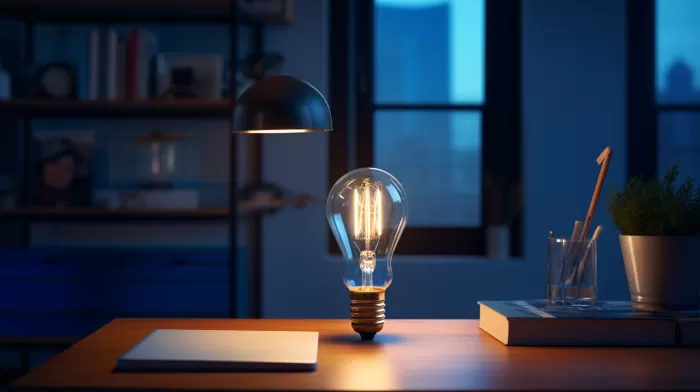For centuries, the healing properties of light have been increasingly recognized, with certain types of light helping with weight loss or easing symptoms of migraines. The Ancient Egyptians practiced forms of light therapy, signaling an early understanding that specific types of light could be beneficial to health. Recent research has delved deeper into this area, identifying blue wavelength light as the key to enhancing brain function, improving alertness, attention span, and moods, while reducing stress and fatigue levels.
Blue Wavelength Light and Cognitive Function
A study carried out by researchers from the University of Arizona investigated the impact of blue wavelength light on cognitive function. They found that those exposed to blue wavelength light for merely 30 minutes displayed improved performance in cognitive tasks, giving more accurate responses at a faster rate than they had prior to being exposed to the light. Participants continued to experience the cognitive benefits for a further 40 minutes after exposure.
Notably, MRI scans of participants post-exposure showed increased activity in their prefrontal cortex, the part of the brain responsible for cognition and mental control. This suggests that sitting under blue wavelength light offers a convenient means of sharpening the brain when needing an extra boost of mental energy, such as on a busy morning.
Other Benefits of Blue Light
The potential benefits of blue wavelength light extend far beyond cognitive function. Previous research has explored factors such as improved alertness, a greater attention span, reduced depression and stress levels, and less fatigue. These aspects are key to functioning at an optimal mental level.
Incorporating Blue Light into Your Life
Want to start experiencing the benefits of blue light? You can easily order a blue wavelength light bulb online and install it in lamps or ceiling fixtures in your workspace or living areas. Make sure to place the blue light near your workspace but not shining directly into your eyes, as indirect light emits a softer and healthier glow.
In addition to blue wavelength light from light bulbs or lamps, you can embrace the natural blue light to be found outdoors. Spending time outside and taking in natural sunlight – provided you’re appropriately protected against the harmful effects of the sun’s rays – can also boost mental activity.
A Note of Caution
It’s vital to recognize that blue wavelength light isn’t universally beneficial. Incorporating it into your nighttime routine could disrupt your sleep patterns and lead to insomnia. Additionally, some studies have suggested prolonged exposure to blue light at night could contribute to an increased risk of cancer. Therefore, it is advised to minimize exposure to blue light during the evening, equipping your bedroom with warm, dim lighting to counteract blue light’s stimulating effects and encourage restfulness. Due to these health risks, it’s always a good idea to consult with a healthcare professional about your specific needs and receive advice on the best ways to integrate blue light into your daily life.
In summary, blue wavelength light offers a multitude of benefits for cognitive function and overall mental well-being. Incorporating it into your daily routine, whether through installing blue light bulbs at home or embracing natural light outdoors, can lead to significant improvements in both brain function and mood. As with anything health-related, be cautious in your approach and consult a professional to ensure you get the most from exposing yourself to blue wavelength light.



